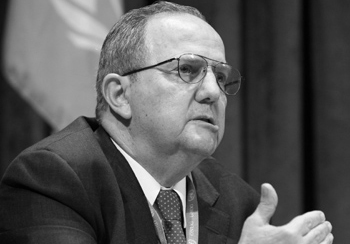
Apr 29, 2013 | News
The Bahrain authorities must fully cooperate with the UN mechanisms and implement the recommendations of the Bahrain Independent Commission of Inquiry (BICI) set up by the Government of Bahrain in June 2011.
The ICJ further calls on the Bahrain authorities to ensure that the recommendations from the UN Universal Periodic Review process in September 2012 are implemented in full and in good faith and, to this end, immediately extend an invitation with specific dates to the UN Special Rapporteur on torture, Juan E. Méndez (photo).
The statement comes as the authorities in Bahrain effectively cancelled a visit of the Special Rapporteur for the second time, a previous visit in March 2012 also having been postponed at the last minute.
“As a former member of the BICI, I find it extremely disappointing that Bahrain has taken this decision for the second time. It keeps dangling the possibility of a visit when it is under pressure to do something about implementing the BICI recommendations,” said Sir Nigel Rodley, President of the ICJ. “One does not have to be a cynic to infer that once the pressure eases – for example, because the Human Rights Council has concluded its review of Bahrain’s human rights performance or the Formula One race is over – it can then withdraw its invitation. I hope the international community will take account of this pattern, when reacting to positive assurances from the authorities. Promises are no substitute for implementation.”
The report of the BICI, published in November 2011, documented numerous cases of torture and ill-treatment.
It further made crucial recommendations for reform so as to prevent these and other violations in the future, including effective investigations into all cases of torture and ill-treatment by an independent and impartial body; the establishment of a standing independent body to examine all complaints of torture or ill-treatment, excessive use of force or other abuses at the hands of the authorities; and the compensation and provision of remedies for all victims.
“The BICI’s recommendations included ones to address the serious problem of torture in Bahrain, a problem I had identified in the 1990s when I held the mandate Juan Mendez now discharges with consummate professionalism. One may perhaps be pardoned for considering that the only threat posed by the visit to the political situation is the fear of what information would be uncovered by the visit,” Sir Nigel Rodley concluded.
Contact:
Said Benarbia, ICJ Senior Legal Adviser of the Middle East and North Africa Programme, t: +41 22 979 3817, e-mail: said.benarbia(a)icj.org
UN Photo/Rick Bajornas
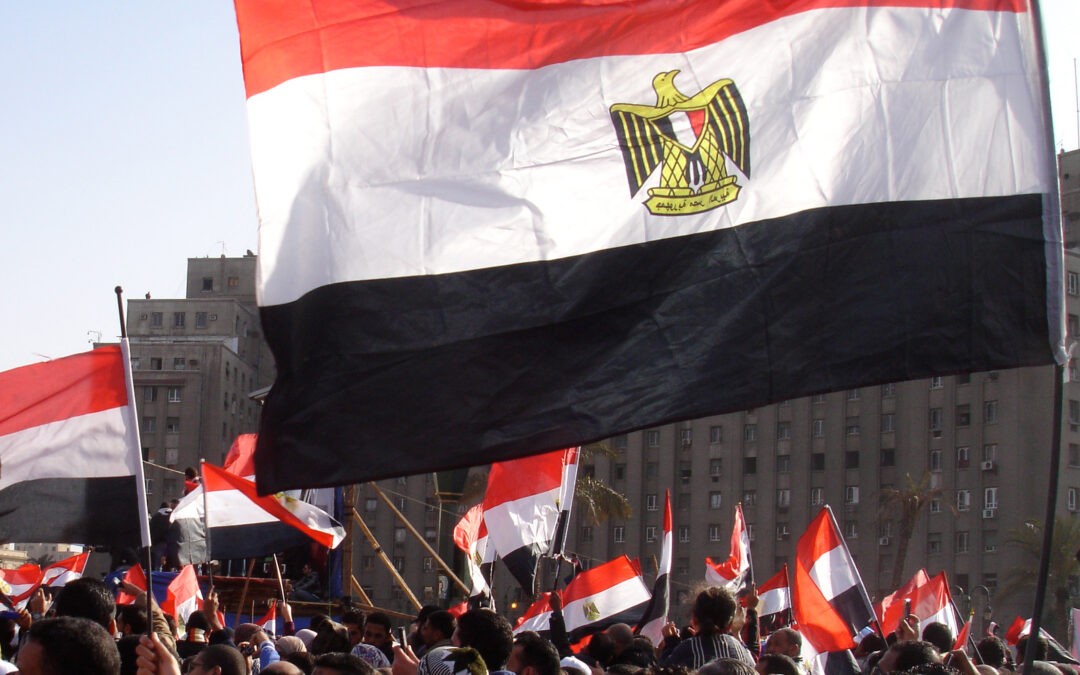
Apr 25, 2013 | News
The ICJ calls on the Egyptian authorities to take immediate steps to guarantee the rights of victims of human rights violations to an effective remedy and to reparation for the serious harm many have suffered.
The authorities should initiate, as a matter of the highest priority, prompt, thorough, independent and impartial investigations into past and ongoing human rights abuses, including cases of arbitrary detention, torture and ill-treatment, and extrajudicial and other unlawful killings.
The statement comes as the ICJ concludes a high-level mission to address the human rights situation in Egypt and to examine the measures being taken by the authorities to address both the legacy of human rights abuses and to ensure accountability for them.
“The Egyptian authorities should ensure that the pattern of widespread and systematic human rights violations committed under the former regime is not repeated. This will involve the comprehensive reform of State institutions and the revision of the national legal framework with a view to ensuring that the rights of victims are safeguarded in line with international standards,” said Justice Kalthoum Kennou, ICJ Commissioner and member of an ICJ mission to Egypt. “Such reforms should target the police and security forces, the Office of the Public Prosecutor, the Forensic Medicine Office and the judicial system as a whole, including by restricting the jurisdiction of the military justice system to exclude civilians and all cases involving human rights violations.”
The ICJ notes that current reparation programmes, established by the government, have a restricted mandate, which has resulted in the arbitrary exclusion of numerous victims and their families from these programmes. They also do not ensure the accessibility of the range of reparations required under international law. Most importantly, such programmes have failed so far to ensure accountability for past and ongoing human rights violations.
“The very few proceedings against State officials have resulted in acquittals or sentences that are not commensurate with the gravity of the crimes committed. In order to end this cycle of impunity, the Egyptian authorities must hold those responsible for gross human rights violations accountable through criminal prosecutions,” said Alejandro Salinas, a Chilean lawyer and member of the ICJ mission. “They should also establish a transitional justice mechanism with sufficient guarantees of independence and with a comprehensive mandate to address the legacy of past and present human rights abuses, while ensuring that impunity does not become entrenched.”
The delegation was led by ICJ Commissioner, Justice Kalthoum Kennou, and Alejandro Salinas, and was supported by ICJ legal advisers, Alice Goodenough and Marya Farah. The delegation met with the then Minister of Justice, Ahmed Mekki, Justice Adel Omar Sherif of the Supreme Constitutional Court, the President and Secretary-General of the National Council for Human Rights, Hossam Al Gheryani and Abdallah El Ashaal, the Director of the National Council for the Care of the Revolution’s Martyrs, Families and Wounded, Khaled Badwy, the Vice President of the Court of Cassation and Secretary General of the High Judicial Council, Justice Mohamed Mahgoub, Chairman of the Human Rights Committee of the Shura Council, Ehab Kharrat, members of the judiciary, the legal profession and civil society, as well as a number of victims, and the families of victims of human rights violations committed before and after the departure of former President Mubarak.
Contact:
Said Benarbia, ICJ Senior Legal Adviser of the Middle East and North Africa Programme, tel: 41 22 979 38 17, e-mail: said.benarbia(a)icj.org
Egypt-ICJ calls auhorities-Press release-2013-Arabic (full text in PDF)
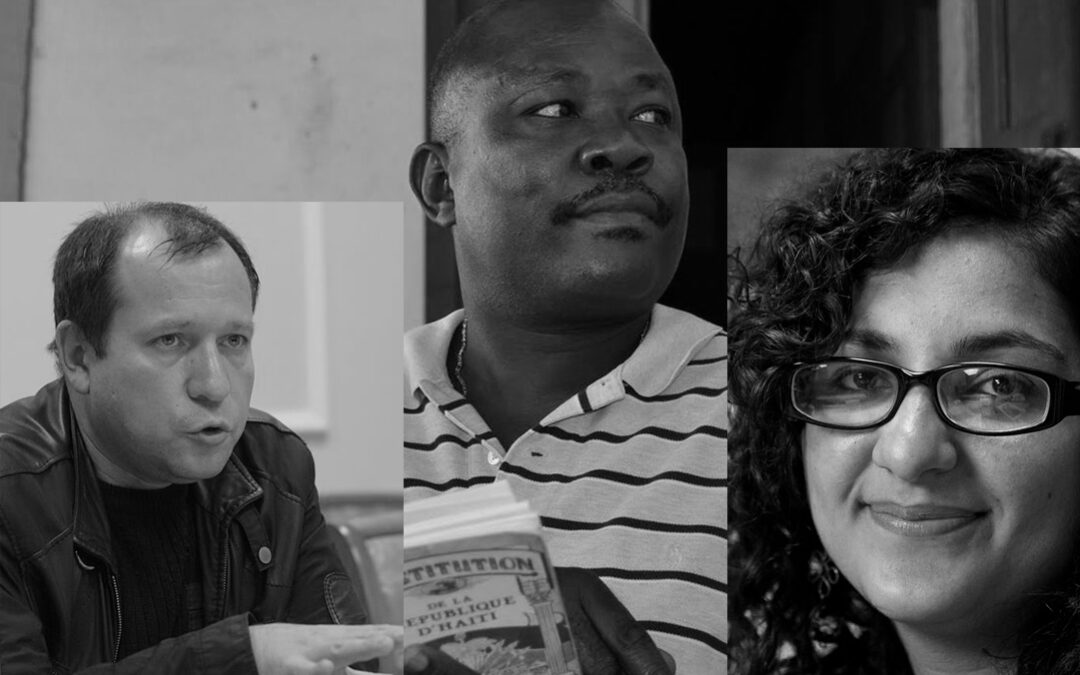
Apr 24, 2013 | Feature articles, News
The three final nominees for the Martin Ennals Award for Human Rights Defenders are Mona Seif (Egypt), Joint Mobile Group (Russia) and Mario Joseph (Haiti). The ICJ is one of the ten members of the jury.
The Martin Ennals Award is given to Human Rights Defenders who have shown deep commitment and face great personal risk. The aim of the award is to provide protection through international recognition.
Selected by ten leading human rights organizations (ICJ, Amnesty International, Human Rights Watch, Human Rights First, International Federation of Human Rights, Front Line Defenders, HURIDOCS, Diakonie – German Protestant Welfare, World Organization Against Torture and International Service for Human Rights) it is the world’s most important Human Rights Prize.
The 2013 Award will be presented on Oct. 8th at a ceremony hosted by the City of Geneva.
Mona Seif (Egypt) is the core founder of the” No To Military Trials for Civilians”, a grassroots initiative which is trying to stop military trials for civilians.
Since February 25, 2011, Mona has brought together activists, lawyers, victims’ families, local stakeholders and started a nationwide movement against military trials.
As part of the recent crackdown on the Freedom of Speech in Egypt she has been charged along with other Human Rights activists.
She noted that “International solidarity, and I mean people’s support not governments, empowers us to continue our battle and stop military trials for civilians“.
After the murder of several human rights activists working in Chechnya, Igor Kalyapin started the Joint Mobile Group. To reduce the risk they send investigators on short missions to Chechnya to document Human Rights abuses.
This information is then used to publicise these abuses to seek legal redress. Igor Kalyapin speaking of the effect of international publicity said “… when the international community is watching us it is more difficult for the authorities to take steps against us…”
Mario Joseph, Haiti’s most important Human Rights lawyer, has worked on some of the most important cases in Haiti, including the current case against the former dictator Jean-Claude “Baby Doc” Duvalier.
His family received asylum in the United States in 2004, while he chose to return to Haiti. He has faced threats and harassment for much of his 20 years as a lawyer although it has intensified in recent months.
He says: “this recognition from the Ennals Award shines a vital spotlight on my work, and on the work of everyone who is fighting for human rights in Haiti. That spotlight will make our work safer and more effective.”
MEA-Short Summary-2013 (read the pdf)
MEA-MONA SEIF bio-2013 (read the pdf)
MEA-JOINT MOBILE GROUP bio-2013 (read the pdf)
MEA-MARIO JOSEPH bio-2013 (read the pdf)
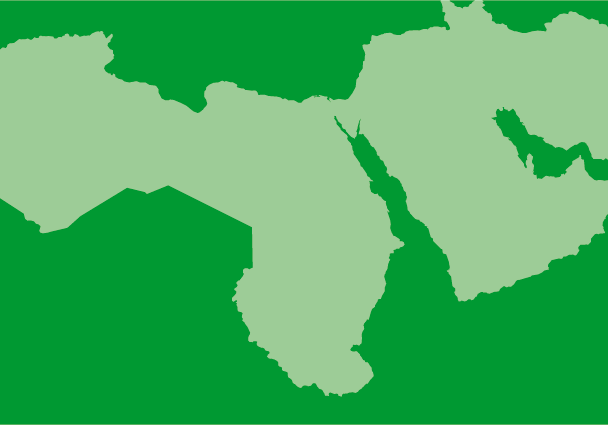
Apr 14, 2013 | News
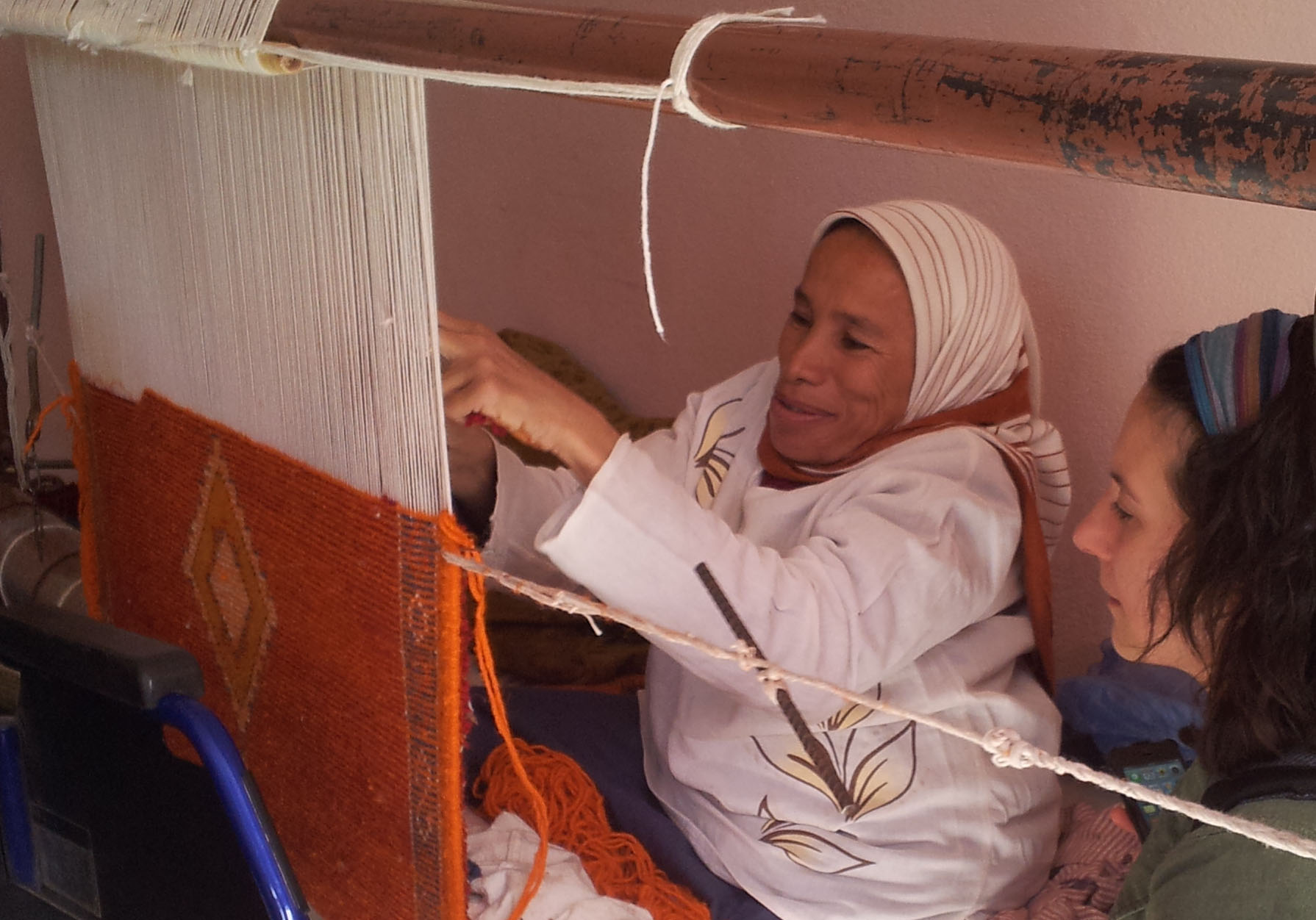 Du 7 au 13 avril 2013, la CIJ a organisé une mission de recherche sur l’accès à la justice pour les victimes de violations des DESC au Maroc.
Du 7 au 13 avril 2013, la CIJ a organisé une mission de recherche sur l’accès à la justice pour les victimes de violations des DESC au Maroc.
Durant la mission, organisée par le Programme sur les droits économiques, sociaux et culturels en collaboration avec le Programme régional Afrique du Nord et Moyen Orient, la CIJ s’est entretenue avec un large éventail d’acteurs impliqués dans la protection des droits économiques, sociaux et culturels, notamment les Présidents des Chambres administrative, civile et sociale de la Cour de Cassation du Royaume du Maroc ; des membres du Conseil National des Droits de l’Homme ; des représentants de syndicats de travailleurs dont l’Union Marocaine du Travail (UMT) et la Confédération Démocratique du Travail (CDT), ainsi que des associations de protection des consommateurs telles que la Fédération Nationale des Associations du Consommateur (FNAC), la section UNICONSO de Casablanca ainsi que l’Association Marocaine de Protection et d’Orientation du Consommateur (AMPOC) à Kenitra.
La CIJ a également rencontré des représentants de la société civile marocaine, y compris l’Union d’Action Féminine (UDF) et l’Association Démocratique des Femmes du Maroc (ADFM) ainsi que des victimes de violations des DESC.
Les entretiens menés durant la mission ont permis d’identifier les avancées mais aussi un nombre d’obstacles tant juridiques que pratiques empêchant un accès efficace à la justice pour les victimes de violations des DESC ainsi que les causes profondes de ces violations.
Les personnes rencontrées ont principalement insisté sur le fait que malgré qu’une nouvelle Constitution progressiste ainsi que de nouvelles lois respectueuses des droits de l’homme aient été adoptées ces dernières années, leur application demeure problématique.
Cette mission a permis de récolter de nombreuses informations qui complèteront celles déjà compilées depuis juillet 2012 par le biais de recherche documentaires et ateliers, et permettront de publier un rapport sur l’accès à la justice pour les violations des DESC au Maroc, qui sera publié au courant de l’année 2013.
Contexte de la mission
Dans le cadre de projets nationaux tels que celui sur le Maroc, le Programme sur les droits économiques, sociaux et culturels de la CIJ vise à contribuer à l’amélioration de la responsabilité pour les violations de droits de l’homme et l’accès à la justice pour tous, notamment les victimes de violations et de menaces à l’encontre des droits économiques, sociaux et culturels.
La CIJ a démarré un processus de recherches au niveau national afin d’identifier les obstacles et les possibilités pour l’accès à la justice, ainsi qu’un processus de consultations et de collaborations avec ses partenaires locaux afin de déterminer des stratégies pouvant remédier aux manquements identifiés.
Selon les besoins identifiés, la CIJ appuiera la mise en œuvre de recommandations et interviendra à travers des actions telles des formations et des contributions juridiques.
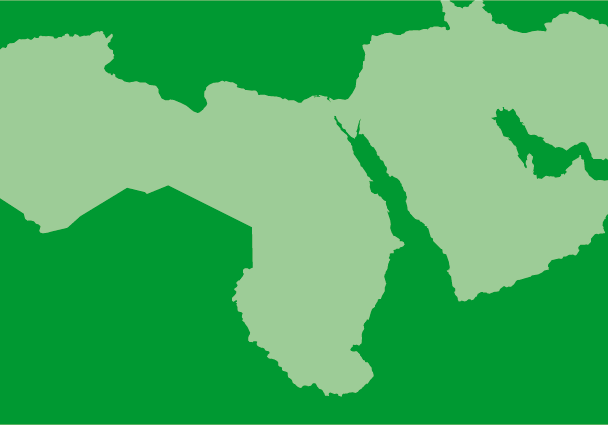
Mar 12, 2013 | News
The ICJ today condemned the blatant disregard by the UAE of the right to a fair and public trial, after its international observers were prohibited from attending the first two hearings of criminal proceedings against 94 individuals.
The detainees include judges, lawyers and human rights defenders. The hearings took place before the State Security Chamber of the United Arab Emirates (UAE) Federal Supreme Court.
The ICJ observers were turned away on 4 and 11 March 2013 by police officers before they reached the court.
“The ICJ deplores the decision of the UAE authorities to conduct the trial of the 94 detainees behind closed doors and to deny access to all international observers for both the opening and second hearing of this trial”, said Ketil Lund, ICJ Commissioner, former Supreme Court Judge of Norway and one of the two ICJ observers who was denied access to the court.
“This denial, combined with consistent and credible reports that detainees have been subjected to torture and other ill-treatment, including prolonged solitary confinement, and denied full access to defence counsel, both during questioning and in preparation for the trial, are inconsistent with fair trial standards and cast serious doubts about the fairness and the outcome of the process.”
Under international law and standards and UAE law, all criminal trials must be open to the public, subject to narrow exceptions not apparently applicable in this trial.
The denial of access to international observers itself constitutes a serious violation of the right to a fair trial.
The ICJ calls on the UAE authorities to fully investigate reports of torture and ill-treatment of the detainees and ensure that information obtained through such practices are not used as evidence in the criminal proceedings.
The UAE authorities must also ensure that as long as the accused remain in detention, their right to have full and unrestricted access to lawyers, including the right to consult in private, medical personnel and family members are fully guaranteed.
The ICJ notes that the accused are charged with “establishing, founding and administering an organization, Da’wat Al Islah, with the aim of challenging the basic principles upon which the government of the State is based, taking control of the government and establishing a secret structure for the organization” (Decision of referral No.79 of 2012 (State Security) of 27 January 2013).
“These ill-defined charges, which fail to meet international law requirements of legal certainty, criminalise the enjoyment and exercise of the rights of all UAE citizens to freedom of expression and association, and to fully take part in the conduct of public affairs. The UAE authorities must therefore drop these charges and put an immediate end to this unfair judicial process,” Lund added.
Contact:
Said Benarbia, ICJ Senior Legal Adviser of the Middle East and North Africa Programme, tel: 41 22 979 38 17, e-mail: said.benarbia(at)icj.org
UAE-right to a fair trial-press release-2013-Arabic (full text, pdf)










